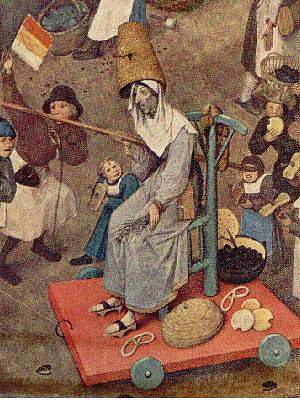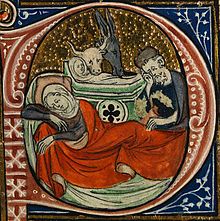Athanasius' letter to Marvellinus continues:
And herein is yet another strange thing about the Psalms. In the other books of Scripture we read or hear the words of holy men as belonging only to those who spoke them, not at all as though they were our own; and in the same way the doings there narrated are to us material for wonder and examples to be followed, but not in any sense things we have done ourselves.
With this book, however, though one does read the prophecies about the Saviour in that way, with reverence and with awe, in the case of all the other Psalms it is as though it were one's own words that one read; and anyone who hears them is moved at heart, as though they voiced for him his deepest thoughts...the marvel with the Psalter is that, barring those prophecies about the Saviour and some about the Gentiles, the reader takes all its words upon his lips as though they were his own, and each one sings the Psalms as though they had been written for his special benefit, and takes them and recites them, not as though someone else were speaking or another person's feelings being described, but as himself speaking of himself, offering the words to God as his own heart's utterance, just as though he himself had made them up. Not as the words of the patriarchs or of Moses and the other prophets will he reverence these: no, he is bold to take them as his own and written for his very self. Whether he has kept the Law or whether he has broken it, it is his own doings that the Psalms describe; every one is bound to find his very self in them and, be he faithful soul or be he sinner, each reads in them descriptions of himself.
It seems to me, moreover, that because the Psalms thus serve him who sings them as a mirror, wherein he sees himself and his own soul, he cannot help but render them in such a manner that their words go home with equal force to those who hear him sing, and stir them also to a like reaction.
Sometimes it is repentance that is generated in this way, as by the conscience-stirring words of Psalm 50; another time, hearing how God helps those who hope and trust in Him, the listener too rejoices and begins to render thanks, as though that gracious help already were his own. Psalm 3, to take another instance, a man will sing, bearing his own afflictions in his mind; Psalms 10 and 11 he will use as the expression of his own faith and prayer; and singing the 53th, the 55th, the 56th, and the 141nd, it is not as though someone else were being persecuted but out of his own experience that he renders praise to God.
And every other Psalm is spoken and composed by the Spirit in the selfsame way: just as in a mirror, the movements of our own souls are reflected in them and the words are indeed our very own, given us to serve both as a reminder of our changes of condition and as a pattern and model for the amendment of our lives.

